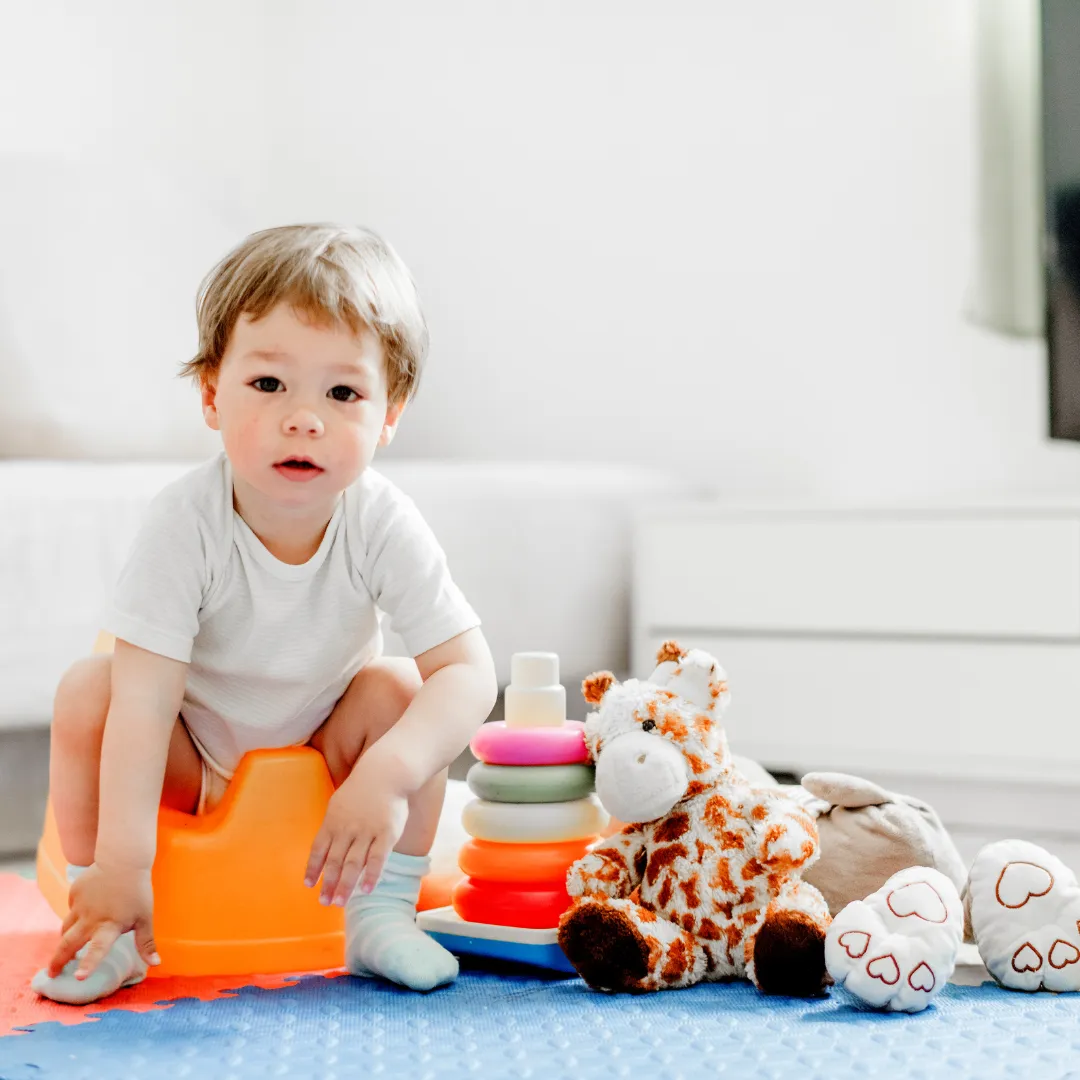Join our community
Check It Out

The toilet training or learning is a function once learned that lasts a lifetime! Put simply, toileting is as fundamental as breathing, eating, walking and talking. None of those life fundamentals require rewards to achieve them. So one has to wonder, why do it for toileting? The answer is rewards are given to appease the parent, not the child. The desire to get toilet training done in a pre-conceived period of time spurs the parent to cajole or entice the child with rewards in order to be successful quickly. However, quick success based upon external gifts can backfire. Some of the downfalls with rewards are shared below.
What happens when a sticker/lollipop/promise of Peppa Pig does not make your child follow your call to go to the toilet? Toddlers seem to have an amazing sense of knowing just when you really want them to do something and refusing to do it. Sometimes causing a power struggle where the parent oftentimes gives in and may inadvertently set a pattern for future struggles. Those rewards can incite future struggles with the power landing squarely with the child because once the child stops being compliant and stops caring about the reward, the options dwindle for the parent.
Rewards are commonly used to solicit the continuation of a desired behavior, such as putting away toys. That reward may work because the behavior of putting away items is more psychological than physiological. In contrast, elimination is a physiological response to the body using energy/food and getting rid of that which is not needed. Rewarding that physiological signal can subconsciously create confuison and distrust of the parent as well as the child’s own body. The child may go to the toilet frequently with no result, just to try and get the reward. They may begin to trust the outcome of getting the reward versus the outcome of trusting themselves to get to the toilet without cajoling. The child may also learn that my parent does not trust me to accomplish toileting without some external gift. A bond of support and encouragement can be compromised or jeopardized by the interference of a sticker or lollipop. For the parent relying on a reward for toileting success, it may appear harsh to the child when he tries to go and cannot, for physical or fear-full reasons. A reward cannot be given when there is something physically wrong and sadly, there is a mini break or separation in the relationship everytime the reward cannot be given.
Working together, observing and knowing your child’s natural schedule, works to solidify the parent-child relationship without the wedge of a reward.
As mentioned earlier, toileting is a skill that is fundamental in life. It’s one of the first conscious example of a skill you set for your child. With this being one of your firsts, it begs to ask again who is the reward for? Is it your success or your child’s? If it is your child’s, the distinct sound of liquid hitting water, or a BM plopping in the water is immensely more gratifying than a sticker or a treat. It becomes an internal measure of accomplishment. That kind of internal joy will feed other successes in life. But once a pattern of external rewards have begun, one has to decide when and how to stop. After one week of toilet learning? 5weeks? Every other success? Once a day? Realistically, inviting your child to use the toilet is going to happen all the way to the teen years, and it's safe to say rewards will have stopped. Avoid the mental and emotional challenge for both you and your child that will arise from eliminating rewards, by not giving them at all.
The biggest reason to avoid rewards also happens to be the biggest *motivator* to use the toilet. By using rewards, you take away from the child's sense of pride. That inner sense of *yeah, I can do this myself!* that only comes from consistent efforts and learning over time. That process of feeling the need to “pee” and getting to the toilet is great for developing confidence and independence - coincidentally for both of you!
At Bambini Method, we believe toilet training doesn’t have to be stressful—for kids or parents. Our child-centered approach gives families the tools, strategies, and confidence to make this important milestone a positive experience. Whether you’re just getting started or working through challenges, we’re here to guide you every step of the way.
Connect with us today to learn how Bambini Method can support your family’s toilet training journey.